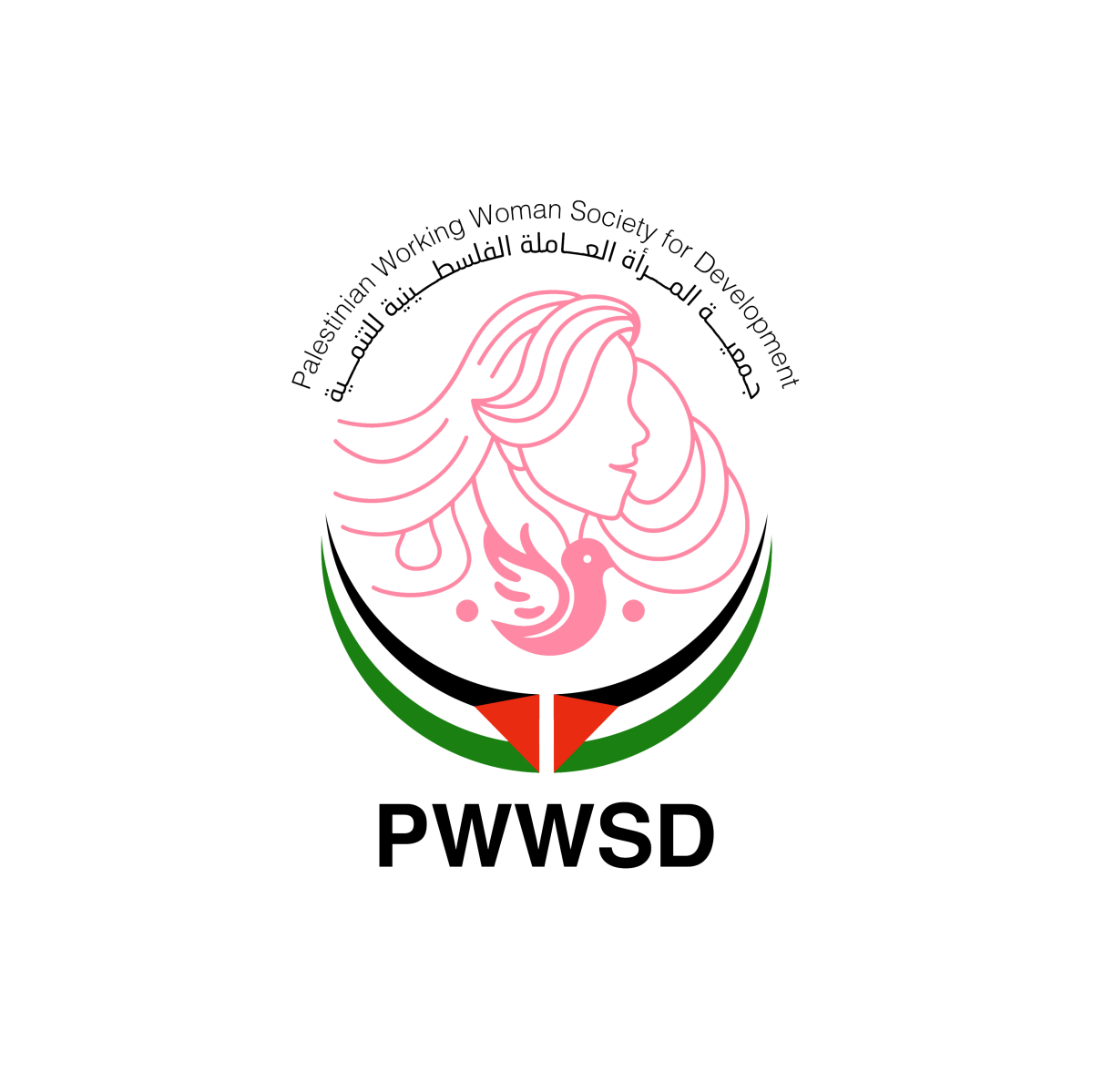IMAN AL-MASARI
Before the war, months earlier, specifically on November 14, 2022, I got engaged. I lived in my home with great happiness; I felt stability, safety, and love despite the surrounding circumstances. Our lives were normal, and joy covered our souls like a silky blanket, while family warmth wrapped our bodies.
By God's grace, I became pregnant, and I thanked God constantly. I was overwhelmed with happiness, as was my husband, and everyone who attended our wedding celebration. My due date was set for October 17, 2023.
The war on Gaza started when I was in my last month of pregnancy, just as my due date was approaching. I was forced to leave my home because of the nearby shelling, and I sought refuge at my husband's relatives' house. Unfortunately, the situation there was no safer.
The house became crowded with displaced people from northern Gaza, an area that had witnessed the fiercest battles and severe bombardment that forced people to flee. Rockets pursued the population, and danger surrounded us. There was no safety, and everything around us caused fear and anxiety.
The shelling continued day and night, with frequent rocket fire. Explosions occurred around us, and we had nothing but prayer.
I was terrified for myself and my unborn child. Why should he hear my anxious heartbeat and the steps I took, running towards life and safety? The sounds were loud and violent, and for the first time, we heard such intensity.
We were warned that the house next to ours was going to be bombed, so we fled the area to avoid being harmed. Our suffering continued, and day by day, the shelling grew fiercer.
I left my house on Wednesday, October 11, 2023, and went to my family's house. The building became overcrowded with displaced people. Everyone was scared, and the children were in a state of panic, crying whenever they heard the sound of an explosion or nearby targeting.
On Friday, airplanes dropped leaflets urging us to evacuate the northern Gaza area, as it was considered a combat zone. My family, neighbors, and all the residents of the neighborhood fled to the central region, specifically to the Nuseirat camp.
The road was difficult and long; there was no transportation. Corpses were scattered on the ground, and I shudder every time I remember the young men who were burned alive in the car and had no one to rescue them, or that family whose members were scattered in Salah al-Din Street: a child's body here, the rest of the family there, and no one to bury them because anyone who tried to help or rescue was targeted and bombed.
We reached Nuseirat camp, where I stayed at a relative's house.
My labor pains intensified, and I could not bear it. The situation around me exacerbated my distress because the planes were bombing anything that moved, even ambulances.
This was my first child, and the fear was overwhelming, and the anxiety even greater. It was my first childbirth, and the bombing was hitting the area indiscriminately. The timing was terrible, and the situation was unsafe and dangerous.
We called the ambulance, but it could only arrive at 4 a.m. I was transferred to the hospital, where I safely gave birth to my child, whom I named Khaled.
I returned to the house where I had sought refuge, but the shelling had increased. Many houses and buildings had been targeted, and massacres took place at the Nuseirat camp, where a whole residential building was bombed, killing everyone inside.
We did not feel safe in Nuseirat camp due to the continuous shelling and the many massacres. People circulated news that Rafah was a “green zone,” meaning it was safer and less bombed, especially in January and February.
Once again, leaflets fell on Nuseirat camp, telling us to evacuate the area and move to Rafah.
I left my refuge and went to Rafah, specifically to the Duwar al-Awda area. This was physically, mentally, and financially costly, especially since I had just gone through labor pains.
My mental state deteriorated due to the lack of stability and constant displacement. We spent a lot of money to reach the city of Rafah.
I reached the house of a friend, and there, I began a new struggle with overcrowding, which affected my newborn's health. His immune system was still weak, and he was less than two months old.
Around us, houses were bombed, shrapnel flew, and windows were shattered. I no longer felt safe in homes; I would say, “There is no safe place, no safe home.” Safety had disappeared, and only the face of God remained.
After weeks of suffering between a house demanding rent, and my husband and I not having the money to pay, and a shelter center overcrowded with displaced people and rampant diseases, I was forced to leave the shelter center and seek refuge in a school, thinking it was under UNRWA management and therefore safe and not likely to be targeted.
At the school, I suffered from overcrowding, poor hygiene, and a lack of cleanliness. I couldn’t bear the shortage of water and food, and even the bathrooms didn’t have water to wash my hands after using them.
The environment at the school was unhealthy and could cause various diseases for my child, and unfortunately, that’s what happened. I slept on the ground in a classroom filled with women and children, which led to the rapid spread of infectious diseases.
My son suffered from humidity and skin problems. I carried my child and went to the health center. A kind security guard at the school offered to host us in his home with my child and husband. For the first time, we lived with some dignity for two months, and my child enjoyed a warm bath and a healthy environment.
Our happiness didn’t last. The occupation forces demanded that we leave the city of Rafah and move to the Mawasi area in Khan Younis due to the expected ground invasion of Rafah.
Once again, the world turned upside down for us, and once again, displacement meant suffering and pain. I lost moments of happiness. I never felt the joy of childbirth, my wedding, or even a peaceful married life.
From the beginning, my life has been one of displacement, pain, and displacement. I never experienced a moment of stability. My mental state changed significantly; I lost a lot of weight, wrinkles appeared around my eyes, and I looked older than I actually was.
Moreover, I didn’t get healthy food suitable for me as a breastfeeding mother. My son also suffered from malnutrition, as there was no food suitable for his age, such as cereal or fruits and vegetables, which caused him to lack essential vitamins.
I couldn’t even buy him special clothes due to the blockade and the suffocating siege imposed since the beginning of the war. He also suffered from skin diseases due to the overcrowding and mixing of displaced people, and I endured the lack of privacy.
We reached the Mawasi area in Khan Younis, and a new phase of suffering began there. The tent was a symbol of the pain that choked the soul. We built a tent in our own way using some poles and pieces of cloth.
In the tent, my child didn’t have a healthy place suitable for his growth. The sand and small pebbles were obstacles to his simple childhood, in addition to the insects we had never seen before, which threatened his life.
The tent was a true hardship. Its fabric roof didn’t protect us from the scorching sun. The air inside was hot and suffocating, causing rashes and pimples on our bodies.
On July 13, 2024, at exactly 10 a.m., the weather was calm and stable. Everyone was busy with their daily tasks; some went shopping, others were working, while the women were cooking or preparing dough, and the children were playing and having fun.
As for me, I was inside the tent, organizing it, and I placed my son Khaled outside the tent to watch and play with the other children. Suddenly, without warning, three consecutive explosions occurred near our displacement site.
Three rockets shook the area, turning everything upside down. The tent collapsed on me, and I felt as if my heart had fallen out of my chest. My blood froze, and I nearly lost consciousness. Where could I take refuge? How? With what?
The tent couldn’t protect us from the shrapnel or even from the dust that filled the place. I hid between the mattresses and clothes, forgetting about my child and where he was. I remained hidden under the blankets, and I could barely breathe.
The rockets continued to fall in rapid succession, and I heard people screaming and the groans of the wounded. Chaos and panic engulfed the area, and the explosions never stopped.
Thankfully, my neighbor came and pulled my son Khaled from under the sand and blankets, and helped me stand up and get out from under the rubble of the collapsed tent. My son had been buried under the sand, but we survived by a miracle.
I carried my son, held my neighbor’s hand, and we ran in the street away from the bombing, looking for a safe place. The area was flooded with chaos, scattered body parts, and collapsed tents.
The dust and smoke filled the area, which affected my ability to breathe. We moved far from the targeted tents, and ambulances came to transport the martyrs and the wounded.
After five hours, we returned to our displacement site when the situation calmed down. The area was full of destruction, grieving people, and the sounds of mothers crying and survivors mourning.
We cleaned the area, tried to raise the fallen tent poles, and resewed the torn fabric. It took great effort to set up the tent again and find additional pieces of cloth to cover it.
Despite all the pain and sorrow, life returned again, but it was a life scarred with tragedies and painful memories. The neighbors who became victims of this massacre were symbols of sorrow. Mothers lost their children or husbands.
Until now, I can't believe what happened. That I am still alive, and that my son Khaled survived. I thank God for everything, and I hope the war ends so we can return to our homes in northern Gaza, and enjoy a life full of safety and peace.






